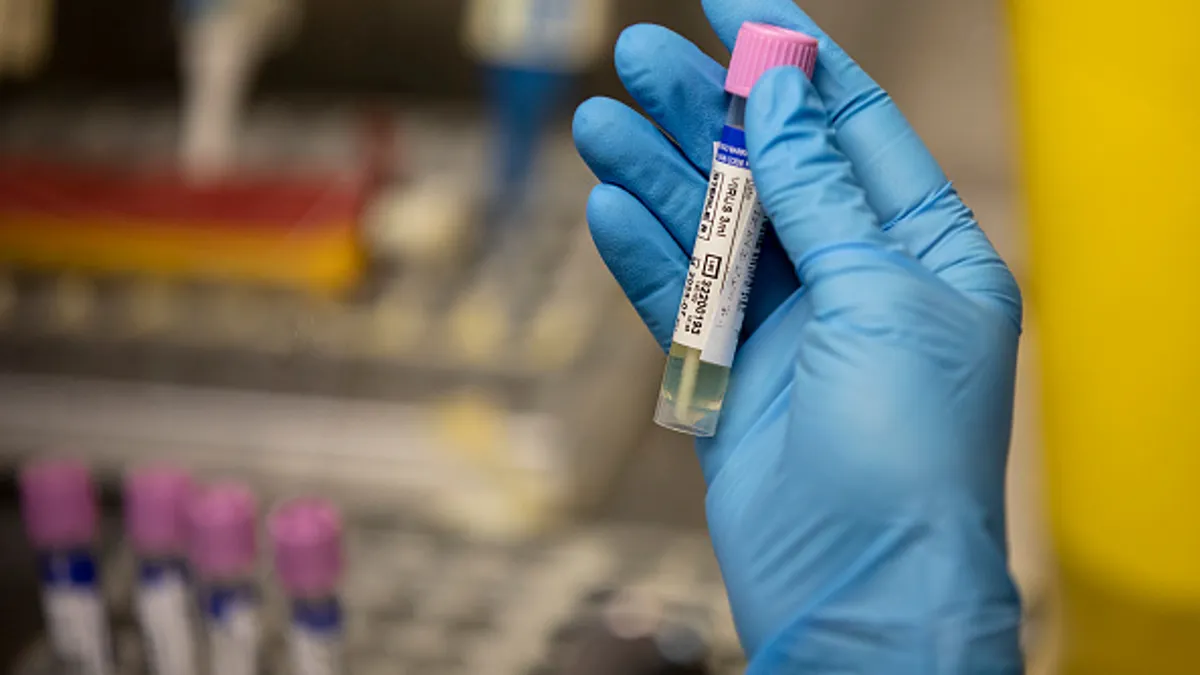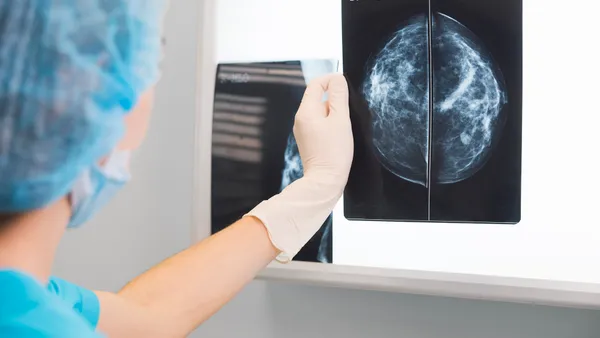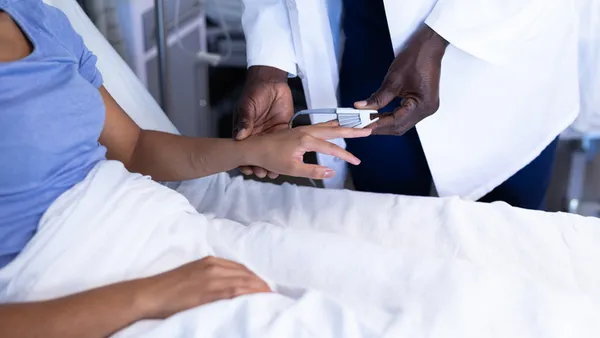Dive Brief:
- The Food and Drug Administration on Wednesday shared guidance on how developers can seek emergency use authorization for monkeypox tests.
- The agency said it intends to prioritize review of EUA requests for high-throughput diagnostic tests, tests with home specimen collection, or rapid diagnostic tests from experienced developers with high manufacturing capacity.
- Quest Diagnostics’ PCR test for monkeypox was the first to get an EUA from the agency on Wednesday.
Dive Insight:
The Department of Health and Human Services late Wednesday gave the FDA authority to issue EUAs for monkeypox tests, saying it would expand the availability of tests as the virus continues to spread in the U.S. Shortly after, the FDA shared details on what information test developers should include in their submissions.
The outbreak differs from the COVID-19 pandemic in that there is already an FDA-cleared test for monkeypox developed by the Centers for Disease Control and Prevention. Some laboratory testing companies started offering that test, while others opted to develop their own.
“That test has been helping address critical testing needs. However, the United States Government believes there are additional, critical needs for monkeypox tests at this stage of the outbreak,” the FDA wrote in its guidance.
The FDA recommended that test developers send information including:
- Description of the test technology.
- Manufacturing capacity, including ramp up timeframes.
- Test throughput.
- Expected timeline for development, validation, and submission of an EUA request.
- Any available validation data.
The agency said that it does not plan to object to tests being offered that are developed and performed in a CLIA certified laboratory where the tests use PCR technology and lesion swabs, where the tests have been validated and the laboratory notifies the FDA.
The agency said it needs to see more validation of at-home tests or tests that use specimens other than lesion swabs before granting an EUA for those tests.
The agency also cautioned that antibody or serology tests for the disease have “great potential for misuse,” and cannot currently be used to diagnose an active infection or test for immunity.












